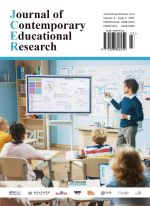Abstract
The application of artificial intelligence (AI) in new engineering education can optimize course content and educational methods. AI provides personalized learning paths, adjusts teaching strategies, and improves teaching management through real-time feedback. Despite its potential, challenges remain in balancing technology use with educational philosophies, ensuring fairness, and preventing over-reliance on technology. The integration of AI should focus on fostering critical thinking and problem-solving skills in students. By improving technical literacy and resource allocation, AI can enhance educational efficiency. However, to effectively implement AI, it requires deep integration with educational content, increased policy support, and continued collaboration between industries and academia.
References
Qian L, Cao W, Chen L, 2025, Influence of AI on Higher Education Reform and Talent Cultivation in the Digital Intelligence Era. Scientific Reports, 15(1): 6047.
Liu Z, Li J, Wang W, 2022, Exploration on the Construction Reform of Geology Specialty with Deep Integration of Artificial Intelligence under the New Engineering Background. Curriculum and Teaching Methodology, 5(3).
Qiu YW, Wang AX, Li J, et al., 2025, Research on the Empowerment of Artificial Intelligence in the Intelligent Development of Higher Education. Journal of Harbin College, 46(02): 124–126.
Huang CC, Lu CF, Tian YY, 2025, Policy Evolution and Prospects of AI Empowerment in Higher Education: A Three-Dimensional Analytical Framework Based on “Theme-Tool-Evaluation.” Higher Education Exploration, (01): 48–59.
Chen H, Yu Y, Li XL, 2024, Research on the Integration of Generative AI into College Education and Teaching. Journal of Huainan Vocational and Technical College, 24(06): 79–81.
